THE RISING COST OF EVERYTHING: A Wildlife Guide is Grateful for Affordable Housing Amid Economic Downturn
Skyrocketing prices for daily essentials are a punch to the gut for the Jackson Hole workforce
Sept. 30, 2022
By Amber Gibson
Special to the Wyoming Truth
Tenley Thompson has worked as a wildlife guide in Wyoming's Greater Yellowstone ecosystem for over 15 years. She and her husband, Dan Bowen, hit the jackpot in 2016 when they purchased an 860-square-foot, two-bedroom house from the Jackson Hole Community Housing Trust after 10 years on the waiting list. If it weren’t for that stroke of luck, Thompson readily admits that there is no way they could afford to live in Jackson Hole, even on two incomes.
And definitely not now. Jackson was already the most unequal metro area in the United States before the economy tanked, according to the Economic Policy Institute. With mortgage rates and rent spiking, workers are facing even more financial hardship. Simply put: Jackson’s high cost of living has made it unaffordable for the working class.
Tenley Thompson is the general manager of EcoTour Adventures, which allows guests to view wildlife from sunrise to sunset in Grand Teton National Park. (Courtesy photo from Tenley Thompson)
“My house is just a couple blocks off the square,” said Thompson, 40, general manager of EcoTour Adventures. “It was $176,000 when we purchased it, and the houses in my neighborhood were selling for between $600,000 to $800,000. Now those houses are $2 to $3 million.”
Thompson estimates that folks entering the Jackson Hole lottery for affordable housing today will wait over 20 years for the chance to buy. Both the Jackson Hole Community Housing Trust and Jackson/Teton County Affordable Housing facilitate rentals and sales of attainable homes for the local workforce, but the gap between the limited supply and overwhelming demand is cavernous.
“I don't know how people make it work moving to Jackson Hole today,” she said. “I had dreams one day of a market home, but I'm not going to ever be able to afford that.”
Thompson added, “We are stuck in affordable housing for life, so there isn't room being made for other people who need it. Our workforce isn't being housed. There's no upward mobility.”
Over the years, Thompson has seen countless friends leave Jackson Hole by economic necessity, not personal choice. Most of the guides at EcoTour Adventures live hours away; some wake up as early as 2:30 a.m. to arrive at work by 5 a.m.
Last spring, EcoTour Adventures increased tour rates by 10% and passed the additional fees on to its guides to help them make ends meet. Tips have decreased in 2022, as wealthy visitors watch their wallets amid rocketing inflation and a slumping stock market.
“We spend years training our guides to be some of the best out there at finding the rare species,” Thompson said. “We put a ton of money, energy and time into recruiting great people and retaining great people. But it's hard to hire people when you have nowhere for them to rent to live.”
In addition to working 50 hours a week at EcoTour Adventures, Thompson spends 30 hours a week making wildlife-inspired pottery on evenings and weekends in her ceramics studio at Yellowhouse Collective. She estimates that the supplemental funds from selling pottery comprise about 30% of her income.
Thompson and Bowen, a 41-year-old systems engineer in the IT department at St. Johns Health, are financially stable, but only with constant vigilance. In recent months, Thompson has adjusted some grocery shopping habits to trim costs. She now drinks fewer smoothies since the price of frozen berries nearly doubled to $15, and she eliminated beef jerky as a tour snack when it tripled in price to $6.25 per bag. After their hot water heater broke down, the Thompsons invested in a more efficient system to save money on utilities.
For her 40th birthday, Thompson took a solo, four-day backpacking trip in the Wind River Range rather than plan a lavish party or international vacation. The entire trip cost $650—and only because she needed to buy a new $400 tent. The time she spent connecting with nature reminded Thompson of everything she loves about living in Jackson and why she’s willing to make sacrifices to call it home.
“I'm quite sure that things would be simpler if we lived somewhere else,” she said, “but this is where I want to raise my daughter so I'm going to make it work.”
The Wyoming Truth is a nonpartisan, nonprofit news operation dedicated to helping the community and fighting for the rights of local citizens. To sign up for a free subscription, or to make a donation, please go to www.wyomingtruth.org. Other media outlets are free to run this article as long as they credit the “Wyoming Truth.” If you have any tips about this issue or others, or for more information about the Wyoming Truth, contact us at info@wyomingtruth.org.


